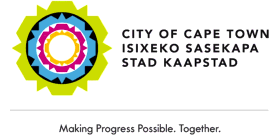NHS Approves 'Next-Gen' Leukaemia Cure, Igniting Hope for Thousands

A 'next generation' immunotherapy treatment, obe-cel, has received NHS approval in England, offering significant potential to cure leukaemia. This innovative CAR T-cell therapy, developed in the UK by Autolus, a University College London (UCL) spinout company, represents a major advancement in cancer treatment.
Obe-cel operates by genetically modifying a patient's own cells, enabling their immune system to recognize and attack cancer more effectively. The treatment is delivered as a single, one-time course involving two intravenous doses administered 10 days apart at selected specialist CAR T-cell centres across England.
The National Institute for Health and Care Excellence (NICE) has recommended obe-cel for people aged 26 and over who are living with relapsed or refractory B-cell acute lymphoblastic leukaemia (ALL). This rare and aggressive blood cancer affects fewer than five in 10,000 people in the UK, and those eligible often have limited treatment options. NICE estimates that over 150 people could benefit from this treatment in England over the next three years.
Clinical trial evidence has demonstrated high rates of remission, with a study of 94 people showing that 77 percent of patients achieved remission. Crucially, more than half of these patients showed no signs of detectable cancer after three and a half years. The therapy is also noted for having fewer side-effects compared to conventional treatments, making it a more tolerable option for many patients.
Harry, a 19-year-old student from Harrogate, who received obe-cel as part of a clinical trial in 2024, shared his positive experience. He expressed immense gratitude, stating, 'The biggest thing it offers is hope. When you're facing a situation like mine, hope is the most valuable thing you can have.' Harry also highlighted that the treatment not only exceeded his doctors' expectations but also worked without many of the severe side-effects associated with other therapies. (It is important to note that while Harry was 19 during his trial, an existing CAR T-cell treatment is already available for individuals aged 25 and under, with obe-cel specifically approved for those 26 and over).
Helen Knight, director of medicines evaluation at NICE, emphasized that obe-cel 'offers real hope to people living with this rare and aggressive blood cancer,' potentially providing 'a more effective and less toxic alternative to standard treatments, with fewer side-effects.' Dr Claire Roddie, UCL Hospital consultant haematologist, expressed delight at NICE's decision, noting that 'many more patients now stand to benefit from this CAR T-cell therapy on the NHS.' She also highlighted the extensive collaborative effort between clinical and research teams, government, and industry partners in proving the drug's safety and efficacy.
Professor Peter Johnson, NHS national clinical director for cancer, hailed the therapy's promise, stating it 'could give patients with this aggressive form of leukaemia a chance to live free from cancer for longer - and, for some, it could offer the hope of a cure.' He described it as 'living medicine' that boosts and guides a patient's immune system to attack cancer. Health minister Ashley Dalton praised the treatment as 'excellent news for patients and their families,' while Fiona Bride of NHS England called it 'a success story that's made in Britain.'
Fiona Hazell, chief executive at Leukaemia UK, welcomed the therapy's availability, underscoring it as a 'significant step forward in expanding treatment options for people living with leukaemia,' reinforcing the profound impact this new treatment will have on patients' lives.
You may also like...
Boxing Titans Collide Again: Mayweather vs. Pacquiao Rematch Buzz

Boxing legends Floyd Mayweather Jr. and Manny Pacquiao are set for a highly anticipated rematch on September 19 at the S...
UCL Drama: Juventus Star's Bold Promise After 'Tragic' Osimhen Error

Juventus faces a tough challenge in the Champions League second leg against Galatasaray after a 5-2 first-leg loss. Defe...
Sundance Shake-Up: Prestigious Film Festival Unveils New 2027 Dates and Boulder Debut

The Sundance Film Festival is relocating to Boulder, Colorado, for its 2027 edition, scheduled from January 21-31. This ...
BAFTA Under Fire: Major Awards Body Launches Review After Damaging N-Word Incident

BAFTA has responded to the N-word controversy at its recent Film Awards, involving Tourette's syndrome activist John Dav...
Shocking Cancellation: 2026 La Onda Festival Scrapped After Lineup Reveal

The 2026 La Onda Festival in Napa, California, has been unexpectedly canceled just weeks after announcing a star-studded...
Star-Studded Showcase: Kravitz, Maroon 5, Ozuna & Yandel Lead 2026 Starlite Occident Marbella

The Starlite Occident Marbella festival has unveiled its initial 2026 lineup, featuring headliners like Lenny Kravitz, M...
Cape Town's Kirstenbosch Garden Blooms onto World's Most Beautiful List!

Cape Town's Kirstenbosch National Botanical Garden has been globally recognized by Homes & Gardens as one of the Most Be...
Mozambique's National Carrier LAM Soars Towards Revival with Ethiopian Airlines Power

Mozambique's government is in discussions with Ethiopian Airlines to restructure its national carrier, LAM, focusing on ...





